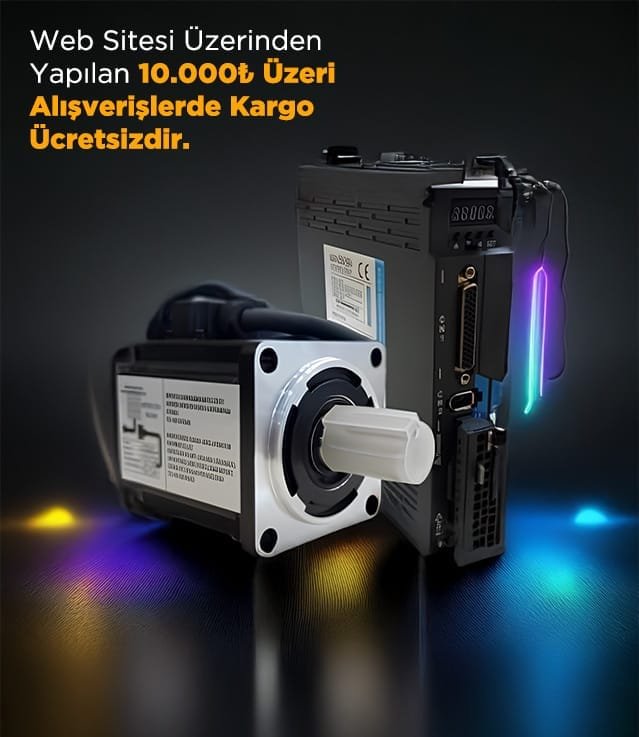
İçindekiler
What is a Capacitor? How It Works and Where It’s Used
A capacitor is a passive electronic component that can store electrical energy for a short period of time and release it back into the circuit when needed. It is widely used in electrical circuits to maintain balance, store energy, and prevent voltage fluctuations. Its structure consists of two conductive plates and an insulating material called a dielectric that separates these plates.
When an electric current is applied to the plates of a capacitor, charges accumulate on these plates and energy storage occurs. This energy is then released back into the circuit when needed. Thanks to this feature, capacitors play a critical role in many areas, from electronic devices to motor systems.
What Does a Capacitor Do?
Capacitors contribute to the more efficient operation of systems by regulating current and voltage fluctuations in electrical circuits. They increase energy efficiency, particularly in alternating current (AC) circuits, by balancing reactive power. They also provide protection against sudden voltage changes.
Another important function is its energy storage capability. This allows capacitors to balance sudden current loads during the start-up and shutdown of electrical devices. They are also used for specific tasks such as signal filtering in electronic devices and providing torque support for initial start-up in motors.
Capacitor Structure
A capacitor basically consists of two conductive plates and a dielectric material placed between these plates. The dielectric material used determines the characteristics of the capacitor. Different materials such as paper, ceramic, plastic, or electrolyte can be preferred as dielectrics.
The type of dielectric material directly affects the capacitor’s capacitance, durability, and intended use. The larger the surface area of the plates and the smaller the distance between them, the higher the capacitor’s capacitance.
What is a Motor Permanent Capacitor?
Permanent capacitors for motors are special capacitors designed for the continuous operation of single-phase electric motors. These capacitors are permanently connected to the motor’s operating circuit and remain in the circuit as long as the motor is running.
Motor capacitors are used to increase motor efficiency, ensure quiet operation, and optimize energy consumption. They play a particularly important role in continuously operating industrial motor systems.
What Does a Motor Capacitor Do?
Motor capacitors are used in single-phase motors to provide torque support during initial startup and ensure smoother motor operation. They balance the high current required during the motor’s initial start-up, preventing sudden overloads.
Additionally, motor capacitors ensure quieter operation of the motor and increase energy efficiency. For this reason, these capacitors are commonly found in many areas such as air conditioners, refrigerators, washing machines, and industrial machinery.
How to Measure a Capacitor?
Capacitors are typically measured using a multimeter or a specialized capacitance meter. When measuring with a multimeter, the device’s capacitance measurement function is used, and the capacitor’s value in microfarads (µF) is displayed.
If the capacitor is faulty, deviations from the expected capacitance value may be observed during measurement. Additionally, short circuit or open circuit conditions can also be detected with this measurement. Performing regular measurements is important to prevent potential faults in motor systems and electronic circuits.
What Are the Types of Capacitors?
Capacitors are classified into many different types based on their intended use and structure. Ceramic capacitors are frequently preferred in electronic circuits due to their small size and low cost. Electrolytic capacitors are used in energy storage and filtering processes thanks to their high capacitance values.
In addition, tantalum capacitors, film capacitors, and supercapacitors have also been developed for different needs. Supercapacitors are increasingly being used in electric vehicles and renewable energy systems, particularly due to their high energy storage capacity.
Where Are Capacitors Used?
Capacitors play important roles in many devices we use in our daily lives. They are used in electronic devices such as televisions, computers, power supplies, and sound systems for filtering and energy storage purposes.
In the industrial sector, they are of critical importance for increasing efficiency and regulating voltage in electric motors, generators, and power systems. They are also widely used in renewable energy systems, the automotive industry, and communication technologies.
How Do Capacitors Benefit Servo Motor Systems?
Capacitors in servo motor systems ensure more stable motor operation and increase energy efficiency. They particularly come into play during sudden load changes, helping the motor respond smoothly.
In addition, capacitors contribute to more precise movements by increasing the sensitivity of servo motors. This function of capacitors is critical in industrial automation systems, CNC machines, and robotic applications.
Diğer Blog Yazılarımız








